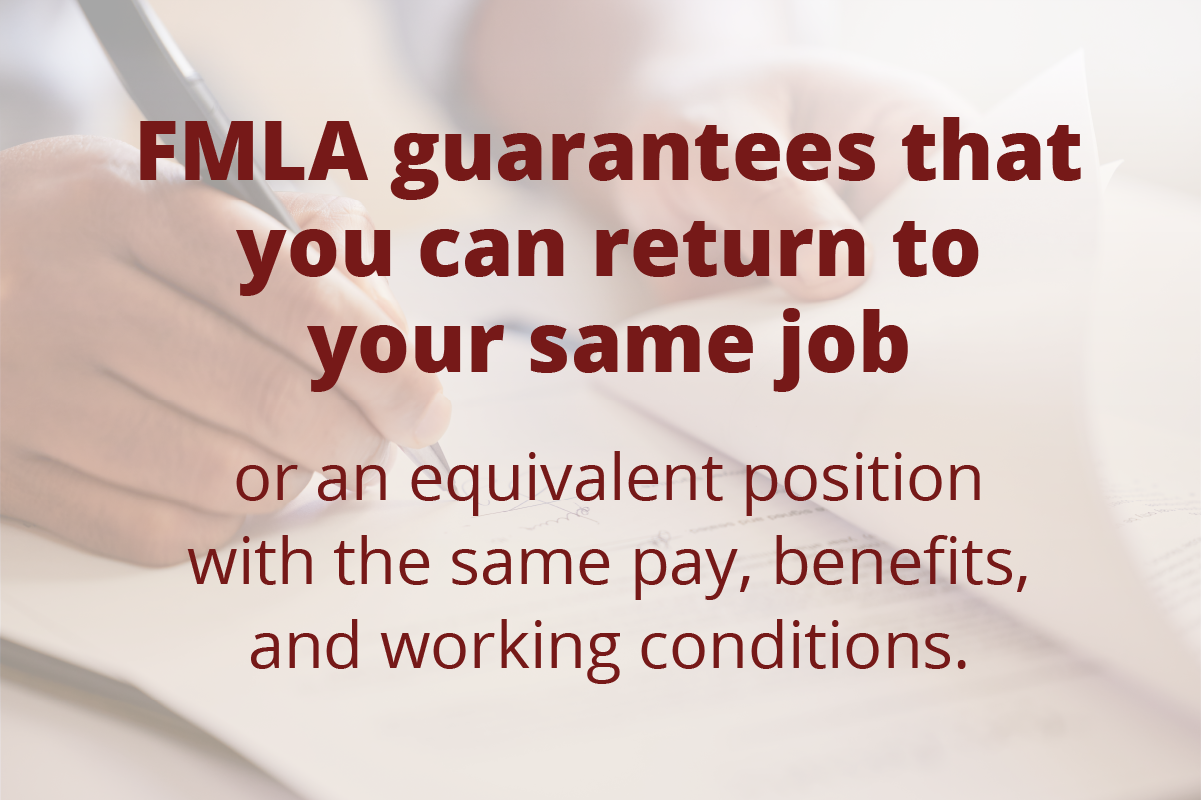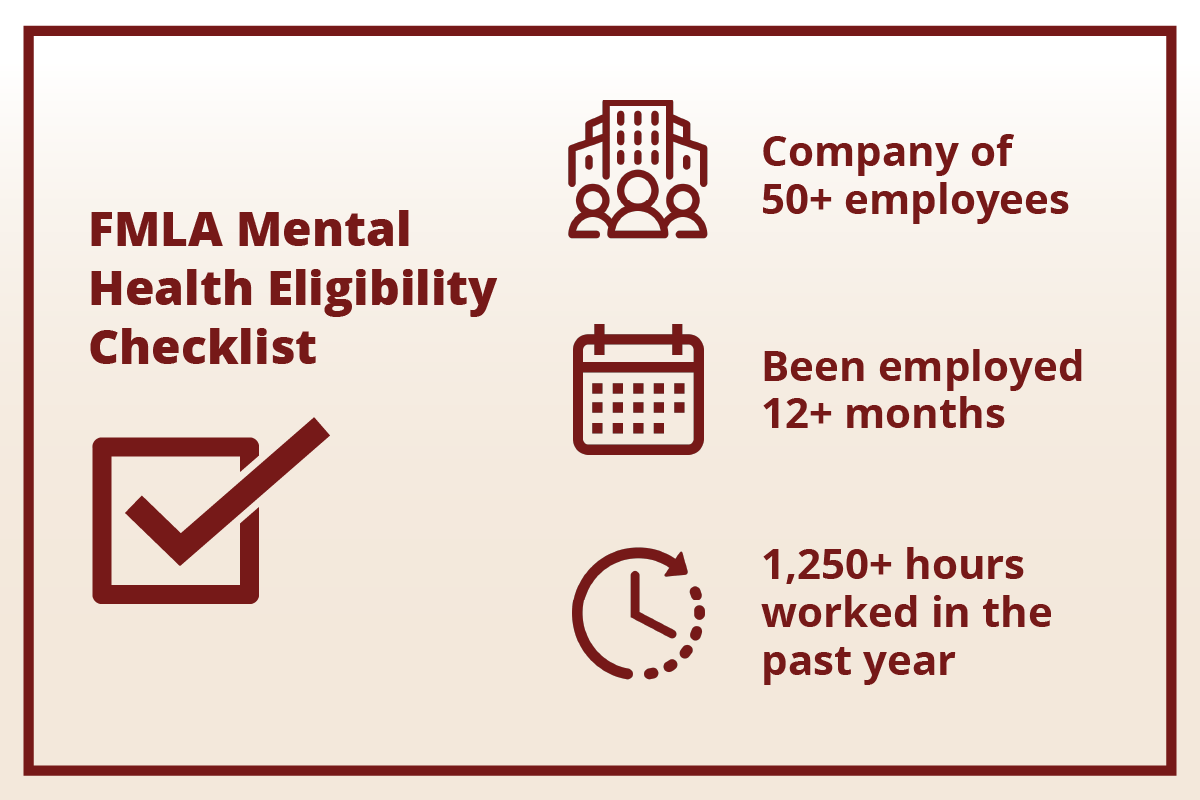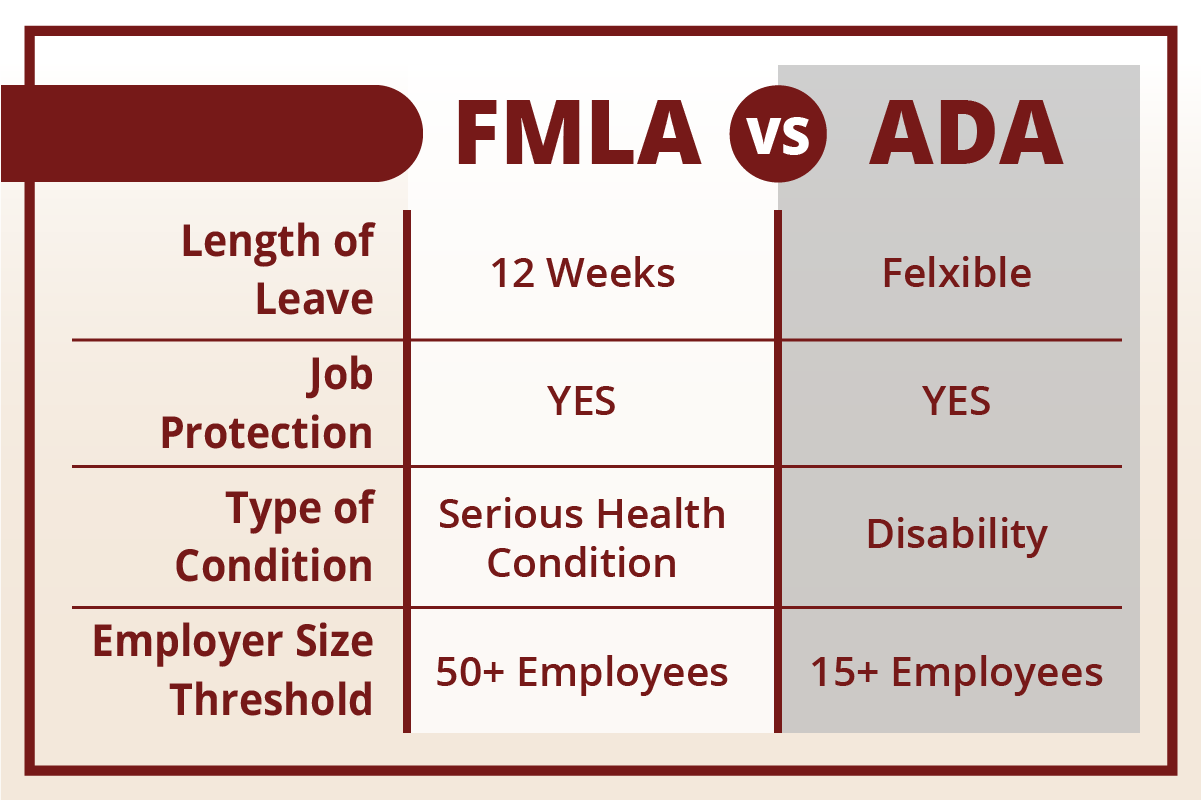
Exploring FMLA For Mental Health Conditions
The Family and Medical Leave Act (FMLA) is a federal law that protects your job when you need time off for mental health reasons ⓘ. This law lets eligible workers take up to 12 weeks of unpaid leave each year without losing their job or health benefits. Understanding how FMLA works for mental health can help you get the support you need without worrying about your job or career.
Key Takeaways
FMLA provides important protections for employees dealing with mental health challenges. The law covers serious mental health conditions like depression, anxiety, and PTSD when they significantly impact your daily life or ability to work. You can request leave by notifying your employer and providing proper medical documentation from your healthcare provider. During approved leave, your job and health benefits are protected, and you have the right to return to the same or similar position.
Understanding The FMLA
The Family and Medical Leave Act is a federal law that gives eligible employees up to 12 weeks of unpaid, job-protected leave each year. This law helps workers balance their job responsibilities with serious health needs, including mental health conditions.
Eligibility Requirements
To qualify for FMLA benefits, you must meet specific requirements. First, you must work for a covered employer, which includes companies with at least 50 employees within 75 miles, all public agencies, and public or private schools. Second, you must have worked for your current employer for at least 12 months (these don’t need to be consecutive months). Third, you must have worked at least 1,250 hours during the 12 months before your medical leave for mental health starts. This equals about 24 hours per week over a full year.
Types Of Leave Covered
FMLA covers several types of family and medical situations. You can use FMLA leave for your own serious health condition, including mental health issues that make you unable to do your job. The law also allows leave to care for a spouse, child, or parent with a serious health condition. Additionally, FMLA covers leave for the birth or adoption of a child, foster care placement, and certain military family situations.
Mental Health Conditions Recognized By FMLA
FMLA recognizes mental health conditions as serious health conditions when they require medical treatment or cause significant impairment. To qualify, a mental health condition must either require inpatient care (like hospitalization) or ongoing treatment by a healthcare provider.
Mental health conditions that commonly qualify for FMLA include Major Depressive Disorder, which causes persistent sadness and loss of interest that affects daily activities. Anxiety disorders, including generalized anxiety disorder and panic disorder, can qualify when they cause excessive worry, fear, and physical symptoms.
Post-Traumatic Stress Disorder (PTSD) qualifies when triggered by traumatic events and causes flashbacks, nightmares, and severe anxiety.
Bipolar disorder, characterized by extreme mood swings from manic highs to depressive lows, can also qualify. Other conditions like schizophrenia, obsessive-compulsive disorder, and dissociative disorders may also be covered when they significantly impact your ability to function.
Applying For FMLA For Mental Health Reasons
Getting FMLA mental health leave of absence involves several key steps that must be completed correctly.
How To Request FMLA Leave
To request FMLA leave, you should notify your employer as soon as possible about your need for time off. If you can predict your need for leave, try to give at least 30 days advance notice. You don’t have to mention a specific medical diagnosis, but you need to provide enough information so your employer understands that you may need FMLA-protected leave. Follow your company’s usual procedures for requesting time off and complete any required paperwork.
Intermittent FMLA Leave for Mental Health
FMLA allows you to take leave intermittently, which means you don’t have to take all your time off at once. This option is particularly valuable for mental health conditions that have episodic flare-ups or require ongoing treatment. With intermittent leave, you can take separate blocks of time off or work a reduced schedule. For example, you might take every Friday off for therapy appointments, take partial days during particularly difficult periods, or take time off when your symptoms worsen. Your healthcare provider must determine that intermittent leave is medically necessary for your condition.
Documentation And Certification Requirements
Your employer may require medical certification to verify your need for FMLA leave. This certification must come from a qualified healthcare provider like a doctor, psychologist, or clinical social worker. The healthcare provider will complete a form that describes your condition, how long it has existed, and how it affects your ability to work. You have at least 15 calendar days to submit this certification after your employer requests it. If the initial certification is incomplete, your employer may ask for clarification, and you’ll have at least seven additional days to provide the missing information.
Employer Responsibilities And Employee Rights
Employers must follow specific rules when handling FMLA requests. They must inform you of your FMLA rights and provide proper notices within five business days of learning about your need for leave. Your employer must keep all medical information confidential in separate files from your regular personnel records. Employers cannot retaliate against you for taking FMLA leave or discriminate against you because of your mental health condition. They must also maintain your health insurance benefits during your leave period.
Impact Of FMLA Leave On Employment
Taking FMLA leave for mental health reasons provides important job protections while you focus on your recovery.

Job Protection And Benefits
FMLA guarantees that you can return to your same job or an equivalent position with the same pay, benefits, and working conditions. During your leave, your employer must continue your group health insurance coverage under the same terms as if you were still working. This means you won’t lose your medical coverage when you need it most. However, you may need to continue paying your portion of health insurance premiums during unpaid leave.
Return-To-Work Policies
When you’re ready to return to work, FMLA requires your employer to restore you to your original position or one that is nearly identical. The equivalent position must have the same level of skill, effort, responsibility, and authority as your previous job. It must also offer identical pay, including overtime and bonus opportunities, and the same benefits package. Your employer may request a fitness-for-duty certification from your healthcare provider before you return to work.
Addressing Potential Workplace Stigma
Unfortunately, some employees may face stigma or misunderstanding from coworkers or supervisors about mental health conditions. The law protects you from discrimination, but workplace attitudes can still be challenging. Document any negative treatment you experience related to your FMLA leave. Remember that mental health conditions are just as valid as physical health conditions under the law. Open communication with supportive supervisors and Human Resources can help create a more understanding work environment.
Legal Considerations Surrounding FMLA
Several important legal aspects affect how FMLA works with other employment laws and court decisions.
Americans with Disabilities Act (ADA) And FMLA
The ADA and FMLA often work together to protect employees with mental health conditions. While FMLA provides specific amounts of leave (up to 12 weeks), the ADA requires reasonable accommodations without set time limits. If you’ve used all your FMLA leave but still need more time off, you might be entitled to additional leave as a reasonable accommodation under the ADA. The ADA applies to employers with 15 or more employees, while FMLA applies to employers with 50 or more employees. Both laws can apply simultaneously, giving you maximum protection.
Interplay With State Leave Laws
Many states have their own family and medical leave laws that may provide additional benefits beyond federal FMLA. If you qualify for both FMLA and state leave, the laws typically run concurrently, meaning you can’t add the time together for a longer leave. However, state laws often have more generous eligibility requirements or cover additional family relationships. Some states also provide paid leave benefits, while federal FMLA is unpaid. You should check your state’s specific laws to understand all available protections.
Notable Court Cases And Legal Precedents
Several important court cases have shaped how FMLA is interpreted. In one notable case, the 11th Circuit ruled that an employee’s vacation request related to depression didn’t qualify as FMLA leave because it wasn’t for a “period of incapacity”. Another important precedent from Ragsdale v. Wolverine World Wide Inc. established that employers can retroactively designate time off as FMLA leave as long as it doesn’t harm the employee. Courts have also emphasized that employees must actually qualify for FMLA leave to receive protection from retaliation.
Challenges And Best Practices
Managing mental health in the workplace presents unique challenges that require thoughtful approaches from both employees and employers.
Common Challenges Faced By Employees
Employees with mental health conditions often face significant obstacles in the workplace. The biggest challenge is workplace stigma, where coworkers or supervisors may not understand or accept mental health conditions as legitimate medical issues. Unlike physical disabilities, mental health conditions are often invisible, which can lead to skepticism or discrimination. Employees may worry about job security, fear being passed over for promotions, or concern that taking leave will negatively impact their career. Many employees also struggle with when and how to disclose their mental health condition to their employer.
Tips For Employers To Support Mental Health
Employers can take several steps to create a supportive environment for employees with mental health conditions. Training managers and supervisors about mental health awareness helps reduce stigma and ensures proper handling of FMLA requests. Offering Employee Assistance Programs (EAPs) provides confidential counseling and support services. Creating clear, written policies about FMLA and mental health accommodations helps employees understand their rights. Employers should also consider flexible work arrangements, such as remote work options or modified schedules, which can help employees manage their conditions. Promoting a culture of openness and acceptance around mental health topics encourages employees to seek help when needed.
Strategies For Effective Communication
Good communication is essential for successfully managing FMLA leave for mental health conditions. Employees should be honest about their needs while maintaining appropriate boundaries regarding personal medical information. When requesting leave, focus on how your condition affects your ability to work rather than providing detailed medical information. For those navigating FMLA in Indiana, Indiana Center for Recovery offers comprehensive mental health support that can align with your leave needs. Employers should engage in interactive dialogue to understand accommodation needs and explore all possible solutions. Regular check-ins during leave can help both parties stay informed about return-to-work plans. Clear documentation of all conversations and decisions protects both employees and employers. At Indiana Center for Recovery, we recognize that effective communication builds trust and leads to better outcomes for everyone involved.
Frequently Asked Questions (FAQ)
Can I use FMLA for mental health conditions?
Yes, you can use FMLA for mental health conditions that qualify as serious health conditions and require ongoing treatment by a healthcare provider.
What mental health conditions are covered?
FMLA covers conditions like major depression, anxiety disorders, bipolar disorder, PTSD, schizophrenia, and other conditions that significantly affect your ability to work or perform daily activities.
How do I request FMLA leave?
Notify your employer about your need for leave due to a health condition, follow company procedures, and provide at least 30 days notice when possible. You don’t need to disclose your specific diagnosis.
Can I take intermittent leave?
Yes, if your healthcare provider determines it’s medically necessary, you can take leave in separate blocks rather than all at once. This is helpful for ongoing therapy or when symptoms worsen periodically.
What documentation is required?
Your employer may require medical certification from a qualified healthcare provider confirming your condition and how it affects your ability to work.
Is my job protected?
Yes, FMLA guarantees you can return to your same job or equivalent position with the same pay and benefits. Your health insurance continues during leave
How long can I take leave?
Up to 12 weeks per year for your own condition, or up to 26 weeks to care for a military service member or veteran with a mental health condition.
Do I get paid during leave?
FMLA leave is typically unpaid, but you may use accrued paid time off or qualify for state paid leave programs.
What if my employer violates my rights?
You can file a complaint with the Department of Labor or pursue legal action. Keep detailed records of any violations.
How do state laws interact with FMLA?
Many states have additional leave laws that may provide more generous benefits or paid leave, which typically run concurrently with FMLA.
FMLA For Mental Health Treatment at Indiana Center For Recovery
FMLA protects your job when you need time off for mental health conditions like depression, anxiety, PTSD, and bipolar disorder, but professional treatment provides the foundation for managing symptoms and supporting your recovery during leave. At Indiana Center for Recovery, comprehensive mental health treatment programs include intensive inpatient psychiatric services for crisis situations and round-the-clock support, along with flexible outpatient treatment options for ongoing therapy and medication management while maintaining daily responsibilities.
Our treatment centers across Indiana provide specialized mental health treatment programs with evidence-based care designed to support your recovery during FMLA leave and help you return to work with improved mental wellness. Call us right now at (844) 650-0064 to learn how we can help you manage mental health conditions and start your journey toward wellness.





 100% Confidential
100% Confidential
